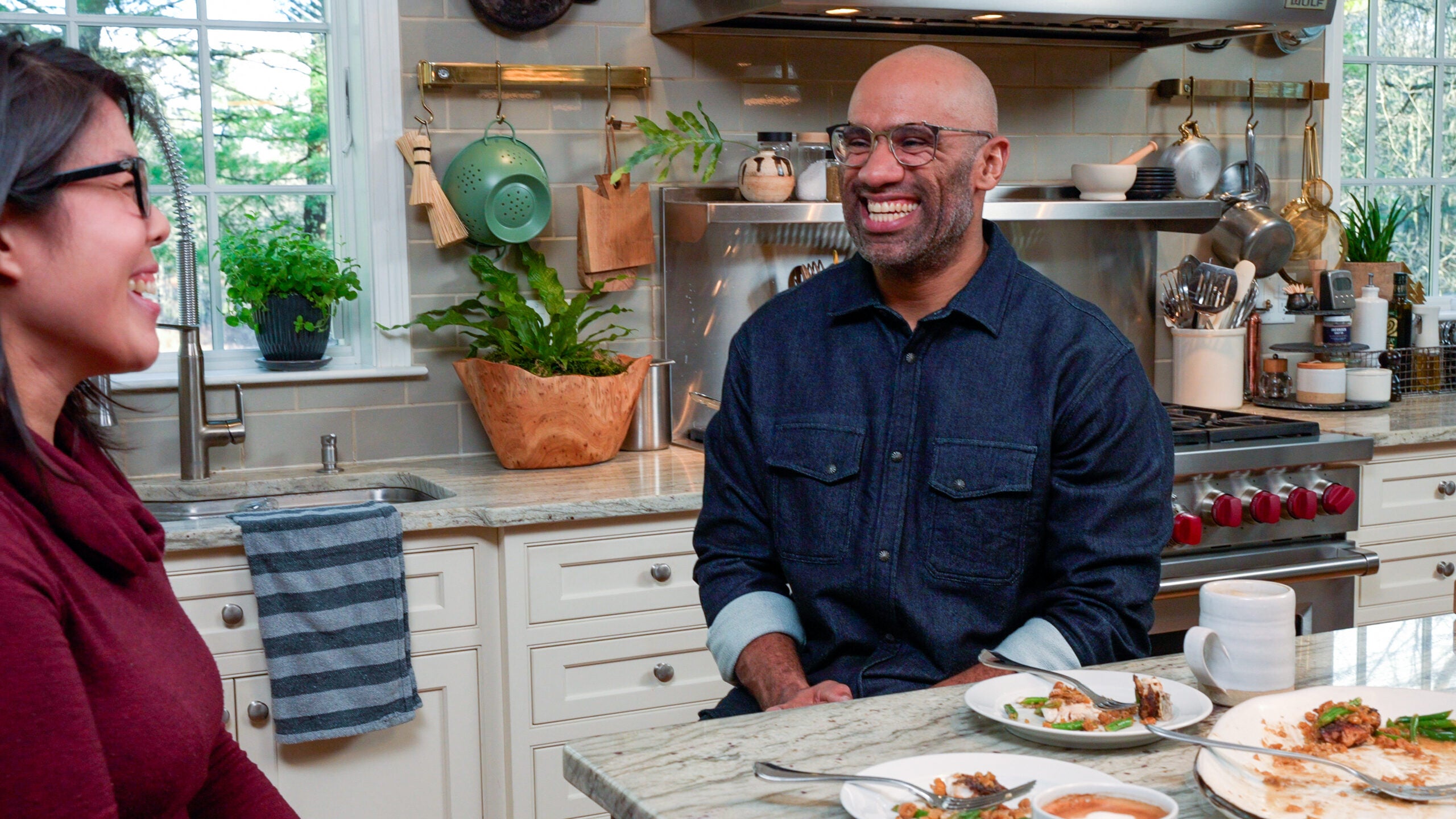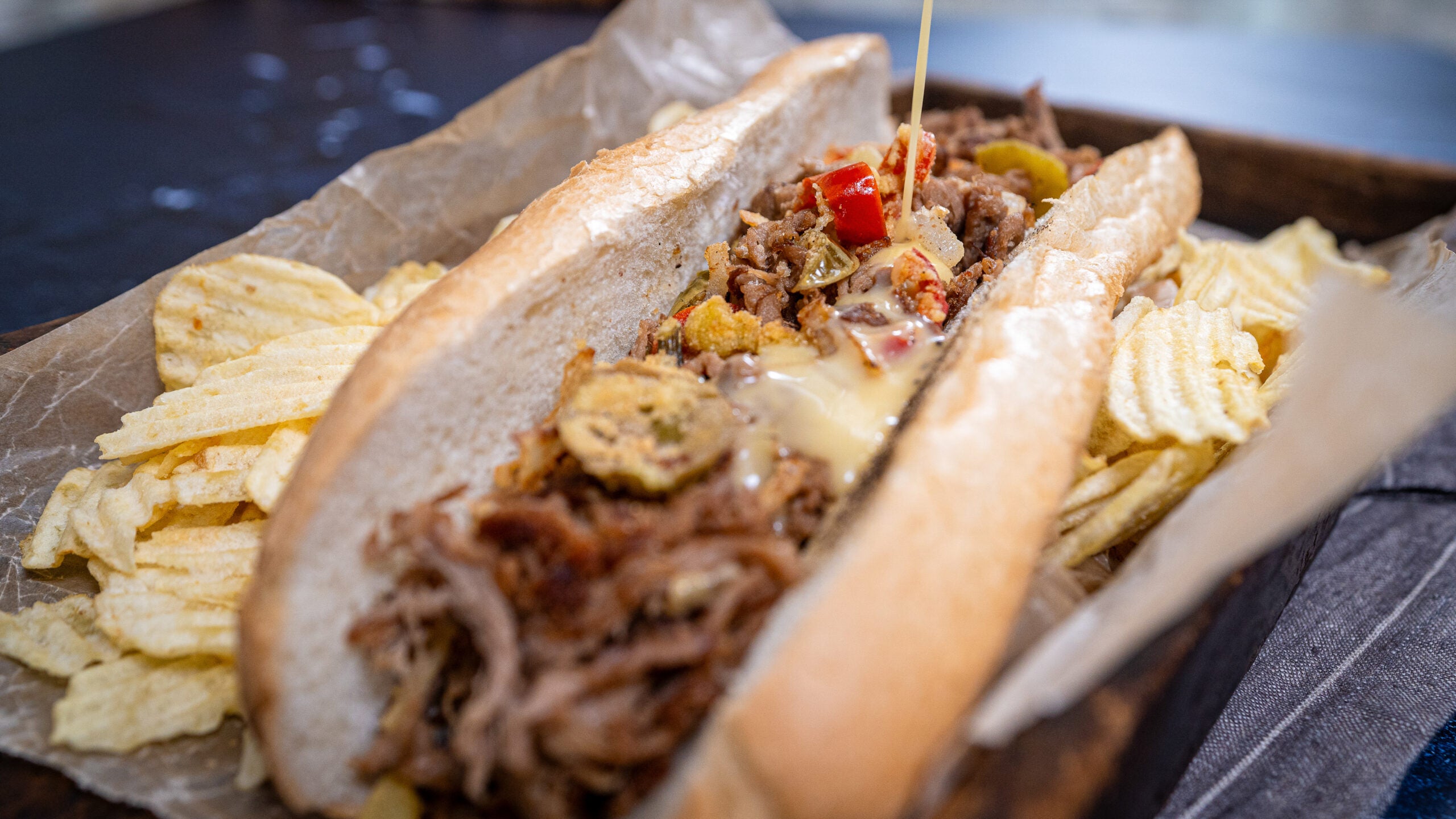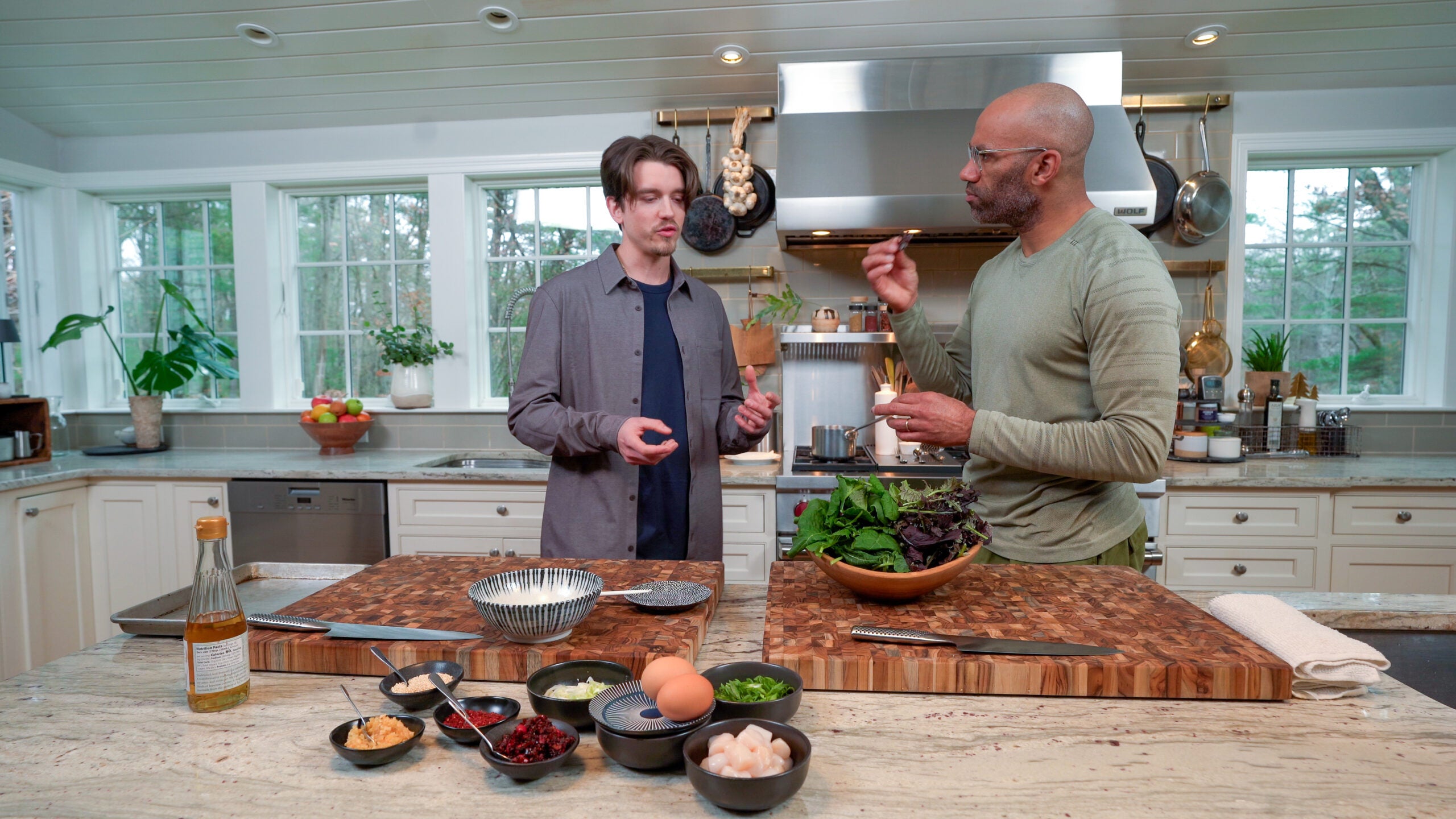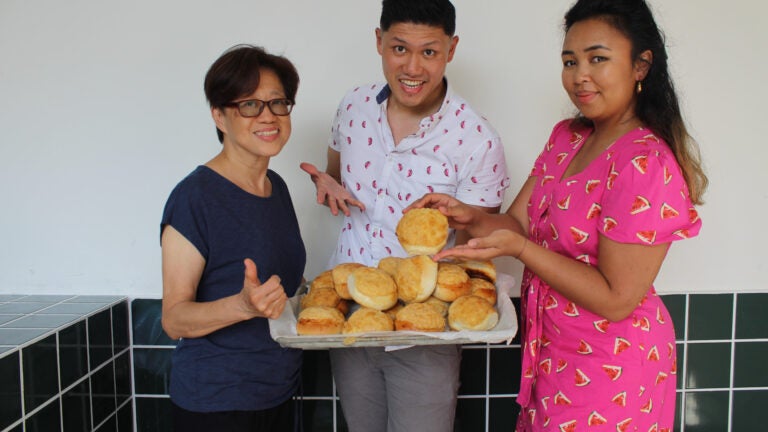Newsletter Signup
Stay up to date on all the latest news from Boston.com

In the fight against climate change, how we get food and what we eat both exacerbates the problem and threatens what’s available to put on our tables, pushing scientists to urgently find sustainable solutions for our food systems.
The Museum of Science aims to celebrate those solutions through a new cooking show, “Tomorrow’s Menu.” The series, which comes out this week, features the very scientists and innovators helping to change the ways we think about food, but Boston foodies will certainly recognize the show’s award-winning host.
Chef Douglass Williams goes on a journey in “Tomorrow’s Menu,” asking questions about the challenges our food systems face due to climate change, but more importantly, the options that are already available in order to cook more sustainably: for example, plant-based meats, shipping container-grown vegetables, and under-fished catch.

“It was a very simple yes to be involved with something like this,” said Williams, owner of MIDA, DW French, and APIZZA. “They told me to be curious, be interested, have wonderment. That suits me very well because that’s me on a daily basis with food and hospitality.”
The three episodes are segmented by place: sea, field, and lab. Sea explores overfishing and catch regulations with climate scientist Helen Cheng, and offers the solution of black sea bass, which Williams said he ended up loving to cook with.
“I want to put black bass on the menu now,” he said.
Field takes Williams to a hydroponic farm inside a shipping container that can grow vegetables inside of it, no matter the weather conditions, with Boston-based Freight Farms. The museum has a Freight Farms on site to show its visitors how it works.

Lab showcases a plant-based meat brand made right in Somerville called Tender, which can also be found at various restaurants in Greater Boston. Williams prepares the plant-based pork for a hoagie in the episode.
Williams, who has worked with the museum before, said the series is really about making people aware that these sustainable innovations exist, without leaving viewers feeling guilty, he added.
But Williams said it’s also a reminder — for those watching, but also for himself — that chefs and restaurants are and need to be the leaders in this fight for a more sustainable food system.
“The point of me being there is to remind me, in a very humbling and kind way… I have a responsibility to make the right decisions based on the facts given,” he said. “And I’m down for that challenge.”

The series is also part of a bigger, year-long string of programs and exhibits called “Earthshot,” which explores climate change and other ways humans can live more sustainably.
David Sittenfeld, director of the Center for the Environment at the museum, said food made sense to include because it’s such a big part — and a necessity, no doubt — of human existence.
“(Food systems) are a place where science and engineering meet our daily lives a certain number of times per day,” Sittenfeld said. “It’s the perfect place for people to think a little bit about how we can envision a zero-carbon and equitable world when we think about food systems.”

Earthshot will also include interactive exhibits onsite, guest scientists, a green career fair, and even a Roblox game for kids.
The digital reach through Roblox and a series like “Tomorrow’s” Menu is crucial to reaching an audience that may not be regular museum attendees; they may not even live in Greater Boston. Alexis Rapo, the museum’s chief digital officer, said they’ve seen a reach of 100 million people in the last year because of their online offerings.
“We really do think of our audience as a global audience,” Rapo said. “If you eat, and you’re curious, these will bring new interests and understanding to people about hydroponic growing, plant-based meats, and new populations to consider as other populations dwindle.”
The three episodes run about 6 minutes each, and will be dropped every other week starting this week. You can find each episode on the museum’s social media platforms, free to watch.
Stay up to date on all the latest news from Boston.com

Stay up to date with everything Boston. Receive the latest news and breaking updates, straight from our newsroom to your inbox.
Conversation
This discussion has ended. Please join elsewhere on Boston.com